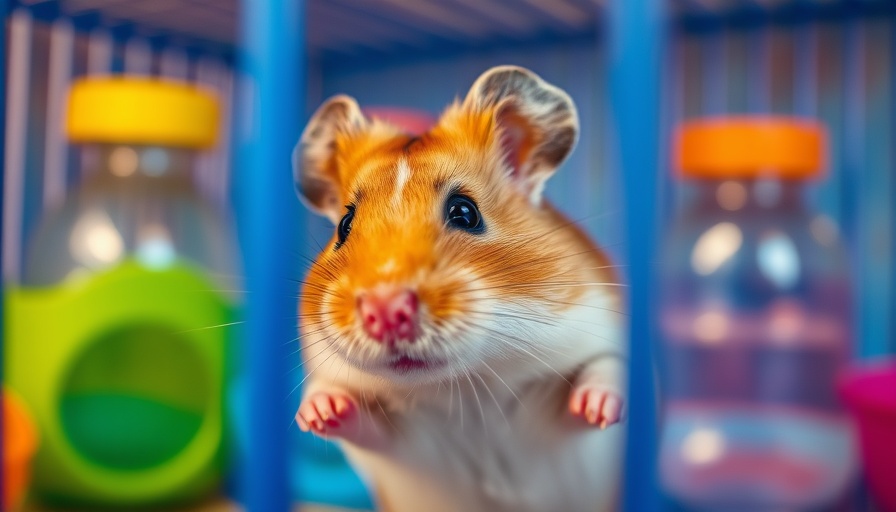
Understanding Small Mammal Pet Welfare
As small mammal pets like rabbits, guinea pigs, hamsters, and rats continue to grow in popularity, a pressing urgency arises regarding their welfare. Recent studies indicate a critical need for improved education, regulation, and care standards to safeguard these beloved companions. Veterinary experts across Europe have ranked the welfare challenges these animals face, highlighting issues that often go unnoticed by owners and professionals alike.
The Greatest Concerns: Housing and Health
Among the numerous challenges identified, inappropriate housing stands out as the foremost concern for nearly all small mammal species. Cases of overcrowding and inadequate spatial provisions significantly affect both physical and psychological health. For instance, rabbits housed in cramped environments exhibit stress behaviors, while hamsters confined to small cages may resort to stereotypical actions like wire-gnawing.
Rats present a different narrative, as respiratory diseases emerged as their most severe welfare issue, plaguing over 60% of owners. The consequences can severely shorted life expectancy and deteriorate quality of life. This highlights not only the need for proper housing that allows natural behaviors but also straightforward modifications in care practices that can mitigate such health risks.
Nutrition Matters: The Dangers of Inadequate Diets
Inadequate diets are another critical area of concern for these animals. Many owners underestimate the importance of species-specific nutritional needs, leading to various health issues, including obesity and dental problems. For example, continuous access to fibrous roughage is crucial for species such as guinea pigs and rabbits, where improper feeding can lead to painful malocclusions.
The Path Forward: Education and Regulation
To address these welfare concerns effectively, education must be a focal point. Vet clinics can play a pivotal role in raising awareness, providing resources, and advocating for better regulations to protect these animals. Like any advancements in veterinary care, integrating caring practices and educating pet owners are vital steps towards ensuring a healthier future for small mammals.
As veterinary clinic owners and managers, engaging more deeply with clients about the welfare needs of small mammals not only enhances the care provided but fosters a more informed community. Implementing structured educational programs can help bridge the gap between awareness and action, ensuring the wellbeing of small mammals in our care.
 Add Row
Add Row  Add
Add 

 Add Row
Add Row  Add Element
Add Element 




Write A Comment